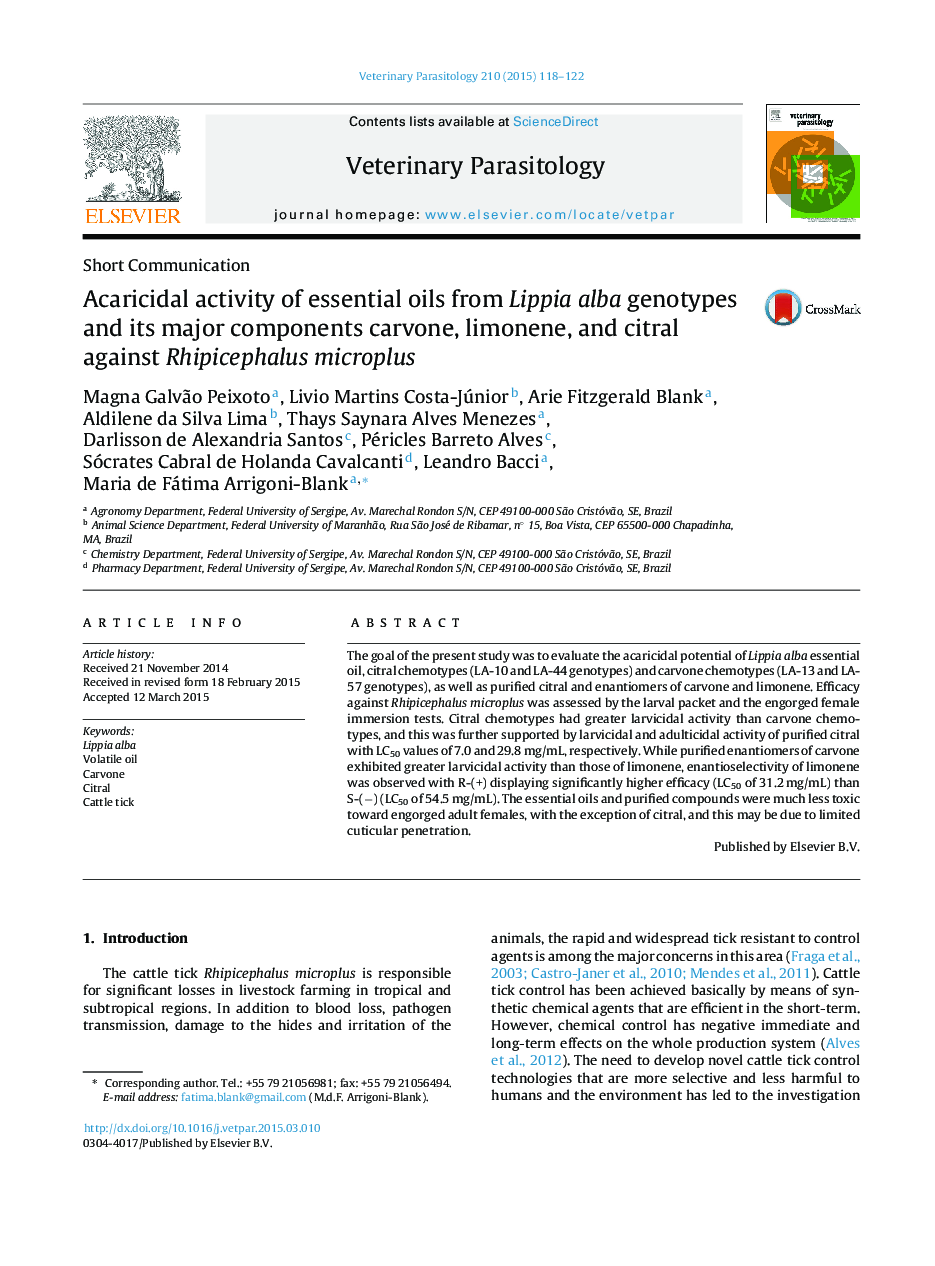| Article ID | Journal | Published Year | Pages | File Type |
|---|---|---|---|---|
| 5802651 | Veterinary Parasitology | 2015 | 5 Pages |
â¢Lippia alba essential oil may be used as an environmentally safe acaricide.â¢LC50 for Rhipicephalus (Boophilus) microplus larvae was observed using 8.8 mg/mL of essential oil.â¢Carvone, limonene, and citral are the primary compounds in L. alba essential oil.â¢Carvone and limonene may act in an additive manner against R. microplus.
The goal of the present study was to evaluate the acaricidal potential of Lippia alba essential oil, citral chemotypes (LA-10 and LA-44 genotypes) and carvone chemotypes (LA-13 and LA-57 genotypes), as well as purified citral and enantiomers of carvone and limonene. Efficacy against Rhipicephalus microplus was assessed by the larval packet and the engorged female immersion tests. Citral chemotypes had greater larvicidal activity than carvone chemotypes, and this was further supported by larvicidal and adulticidal activity of purified citral with LC50 values of 7.0 and 29.8Â mg/mL, respectively. While purified enantiomers of carvone exhibited greater larvicidal activity than those of limonene, enantioselectivity of limonene was observed with R-(+) displaying significantly higher efficacy (LC50 of 31.2Â mg/mL) than S-(â) (LC50 of 54.5Â mg/mL). The essential oils and purified compounds were much less toxic toward engorged adult females, with the exception of citral, and this may be due to limited cuticular penetration.
